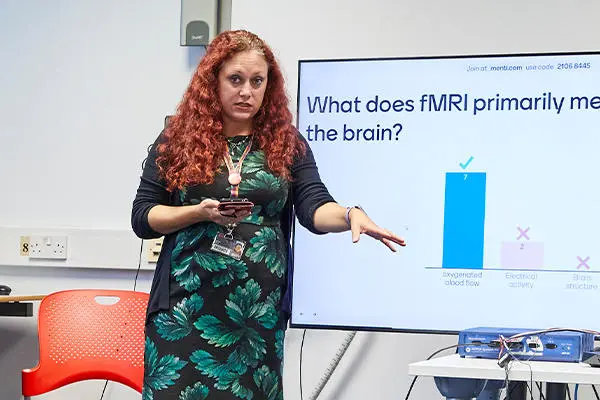
- Home
- Staff profiles
- Academic
- Greg Neil
Dr Greg Neil
BSc (Hons), MSc, PhD, FHEA
Research Fellow
Department of Social Sciences and Nursing

Biography
Greg is a cognitive psychologist specialising in learning, memory and metacognition, as they apply to education and police investigation. He is the head of the Wellbeing and Applied Research in Psychology Group (WARP). Greg pursues an active research career, while supervising PhD students and teaching at both undergraduate and postgraduate level.
Greg came to academia from a career in business, during which he worked for diverse companies such as a dot com training company and National Air Traffic Services. Having left that career behind, he secured ESRC funding to complete a PhD in Cognitive Psychology, focusing on the learning of complex rulesets. Following that, Greg completed a post-doctoral roll on the SuperIdentity project, looking at different ways in which identification information can be used. As part of that Greg Co-ordinated a mass collection of identification information, involving months of planning, and a team of five other post-docs. Greg joined Solent University after this, in 2014.
Research interests
Greg's research interests primarily focus on learning and memory, and metacognition:
- Misinformation and transcription guidelines: Current focus is in looking at the ways in which people’s memory can be influenced when listening to audio, especially when reading transcripts. As part of this work, Greg aims to develop police guidelines to improve transcription practices.
- Memory in forensic settings: Witnesses of crime are frequently called upon to remember what they saw or heard. As such, Greg is interested in both face and voice memory, and of how forensically relevant factors might affect the accuracy of memory. He has also collaborated on several projects in which he has compared computers and humans on matching tasks, such as iris identification.
- Learning: The process by which humans learn, both deliberately (explicit learning) and incidentally (implicit learning).
- Metacognition: The extent to which people can accurately evaluate their own memories and decisions. In other words, when somebody says they are sure they have seen a face before, how much can you trust that judgement?
Greg uses a wide range of research methodologies in his research, with a particular focus on signal detection theory and ROC curve analysis.
ORCID ID
Keywords
memory, learning, metacognition, forensic, education, research methods
Further information
Transcription development pilot work (Policy Through Evidence Grant, 2020).
Concurrent misinformation effect in interviews (Research and Innovation Knowledge Exchange Grant, 2017)
Taught courses


BSc (Hons) Psychology with Sociology
View course
BSc (Hons) Psychology with Counselling and Mental Health
View course




